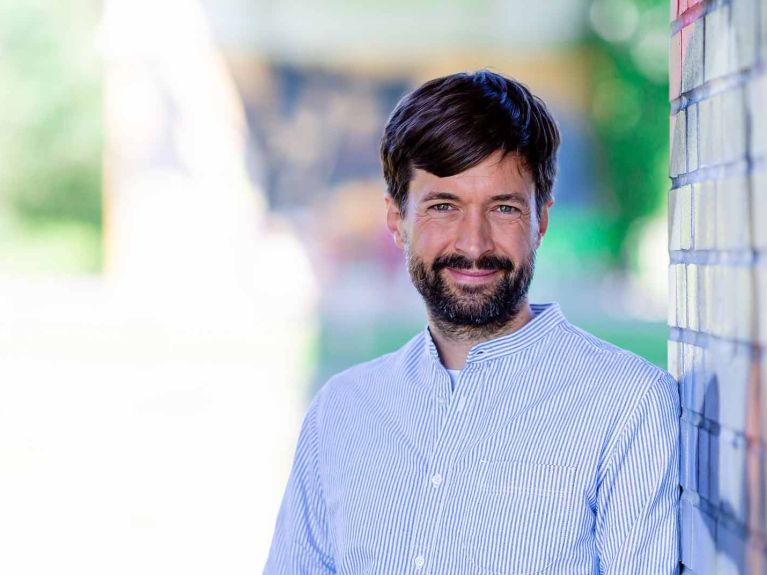Healthy green cities
Which solutions do cities have to offer when it comes to global environmental issues? Answers from sustainability manager Sebastian Backhaus.

Mr Backhaus, where should a sustainable urban planning concept begin?
Green urban planning begins with the city’s structure and the distribution of building zones and green spaces. Planning should include for example a sufficient number of easily useable green and open spaces, as well as climate-adapted buildings and city squares. Furthermore, city planners should promote local public transport and plan footpaths and cycle ways.
One approach that has been much discussed of late is multiple use spaces. The focus here is particularly on so-called “grey infrastructure”, that is to say streets, squares, parking spaces and buildings that could be made more green.
We need to make cities generally greener.
How can cities overcome the challenges posed by climate change?
It is important when planning a city to leave ventilation axes free so as to counter the growing heat pollution that is the result of climate change. In addition, we need to make cities generally greener – turning more vacant plots into green spaces, protecting more city squares and streets from heat by providing shade trees, and by funding green roofs and facades. “Blue infrastructure” also plays an important role. Opening up rivers in the city can help reduce heat pollution.
What role do cities play in terms of protecting biodiversity?
An absolutely vital role given that many rare and endangered species and habitats are to be found in and around cities, while urban populations are continuing to grow in many cities. To protect biodiversity, areas that are home to a large number of different species should not be built on.
Dieses YouTube-Video kann in einem neuen Tab abgespielt werden
YouTube öffnenThird party content
We use YouTube to embed content that may collect data about your activity. Please review the details and accept the service to see this content.
Open consent formWhich concepts exist in Germany to promote biodiversity in cities?
In Freiburg, for example, there is the biodiversity check. The city commissioned a systematic study of its entire populated area to ascertain the local urban biodiversity. The biodiversity check involves issuing planning recommendations for various areas, e.g. improved cultivation of green spaces or measures to green up buildings.
In addition, local municipalities are developing wildflower meadows to provide a habitat for many different species of plants and animals, planting native shrubs or doing without pesticides with a view to encouraging more biodiversity in public spaces.
How would you describe an ideal city?
Resilient, barrier-free, close to nature, social, engaged, cultural, diverse, environmentally friendly, fair, climate-neutral, colourful, healthy, open, inclusive, thoughtfully designed, digital, empathetic, communicative, safe, flexible, cooperative, tolerant, family-friendly, integrative, peaceful, sports-friendly and innovative. Basically the list is infinite.
The ideal city will probably remain a utopia for the time being, especially globally speaking. However, it is up to all of us to work towards this goal – with enthusiasm and sometimes, given all the resistance one faces, with some pretty thick skin.
Sebastian Backhaus heads the sustainability management department of the City of Freiburg, one of Europe’s most eco-friendly towns. Located in the southwest of Germany, Freiburg has a green agenda that dates back to the 1970s. Our questions were answered in cooperation with Markus Liesen (department head at the city planning office) and Harald Schaich (deputy head/department head of Department 2 – natural conservation) from Freiburg.
You would like to receive regular information about Germany? Subscribe here:


